What is salicylic acid?
How does salicylic acid work?
Benefits of salicylic acid
Which skin types benefit from salicylic acid?
What is salicylic acid?
Salicylic acid is a widely used skincare ingredient, best known for its cleansing, antibacterial, and anti-inflammatory properties. It belongs to the group of beta hydroxy acids (BHAs), which also includes citric acid (AHA), but differs from AHAs in its fat solubility, giving it unique benefits for certain skin concerns.
How does salicylic acid work?
Salicylic acid works primarily through exfoliating and anti-inflammatory mechanisms. Its fat-solubility allows it to penetrate deep into pores, where it can dissolve buildup of sebum, dead skin cells, and other impurities. Here are its main functions:
Pore cleansing: Salicylic acid is able to penetrate deep into pores because it is oil-soluble. It dissolves dead skin cells and reduces blockages and impurities that can lead to acne and blackheads. This makes it a particularly effective ingredient for treating acne-prone or oily skin.
Exfoliation: Like other exfoliating acids, salicylic acid gently removes dead skin cells from the skin's surface. This promotes cell renewal and helps make the skin appear smoother and fresher. With regular use, it can refine the skin's texture and prevent the formation of sebum buildup.
Antibacterial and anti-inflammatory effects: Salicylic acid has antibacterial properties that help kill bacteria that can cause acne. It also has anti-inflammatory properties that help reduce redness and swelling in inflamed pimples or skin irritations.
Reduces blemishes and acne: Salicylic acid is particularly effective in treating acne, blackheads, and comedones (pore blockages). It can penetrate deep into the pores, helping to reduce inflammation and prevent the formation of new blemishes.
Refining the skin's appearance: Regular use of salicylic acid makes the skin more even and smooth. It helps improve skin texture and minimize hyperpigmentation (e.g., post-inflammatory hyperpigmentation following acne) by accelerating cell renewal.
The benefits of salicylic acid
Acne treatment: It is a gold standard in the treatment of acne as it deeply cleanses pores, reduces inflammation and inhibits the growth of acne bacteria.
Refining the skin's texture: It provides gentle exfoliation, making the skin look smoother and more even.
Reduction of blackheads and clogged pores: Salicylic acid dissolves sebum accumulation and prevents the formation of blackheads and other impurities.
Soothes inflamed skin: Its anti-inflammatory properties make it ideal for skin prone to redness or irritation.
Better skin texture and complexion: Long-term use can improve the overall appearance of the skin and make it appear fresher and more radiant.
Which skin types benefit from salicylic acid?
Salicylic acid is particularly beneficial for certain skin types and skin problems:
Acne-prone skin:
Salicylic acid helps unclog pores and reduces the inflammation that causes acne. It's an excellent ingredient for fighting pimples, blackheads, and comedones.
Oily skin:
For oily skin, salicylic acid helps reduce excess sebum and unclog pores, providing balanced and matte skin without the risk of excess oil clogging pores.
Impure skin:
People with skin prone to breakouts or blemishes benefit from the deep cleansing effect of salicylic acid. It prevents the formation of new blemishes and promotes clear skin.
Sensitive skin:
People with sensitive skin should use salicylic acid in low concentrations, as it gently exfoliates the skin and reduces inflammation. It can help soothe skin irritations and reduce redness.
Skin with hyperpigmentation or uneven skin tone:
Salicylic acid can help reduce post-inflammatory hyperpigmentation (dark spots after acne) by promoting cell renewal and making skin appear smooth and even.
Application and precautions:
Application: Salicylic acid is available in many formulations such as toners, serums, creams, masks, and scrubs. When applying it to the skin, it's important to follow the product's directions and not overuse, as excessive use can cause skin irritation.
Combination with other acids: Salicylic acid should be used with caution in combination with other exfoliating ingredients such as glycolic acid or lactic acid, as this may cause further skin irritation.
Sun protection: Since salicylic acid can make skin more sensitive to sunlight, it should be combined with a broad-spectrum sunscreen (SPF 30 or higher) during the day.



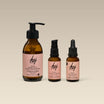

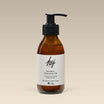

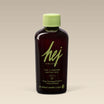
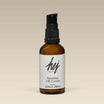
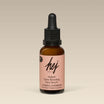
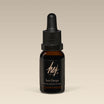


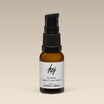
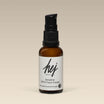
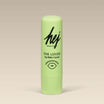


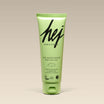
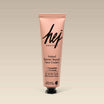
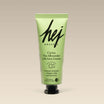

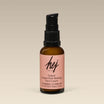



Leave a comment
This site is protected by hCaptcha and the hCaptcha Privacy Policy and Terms of Service apply.